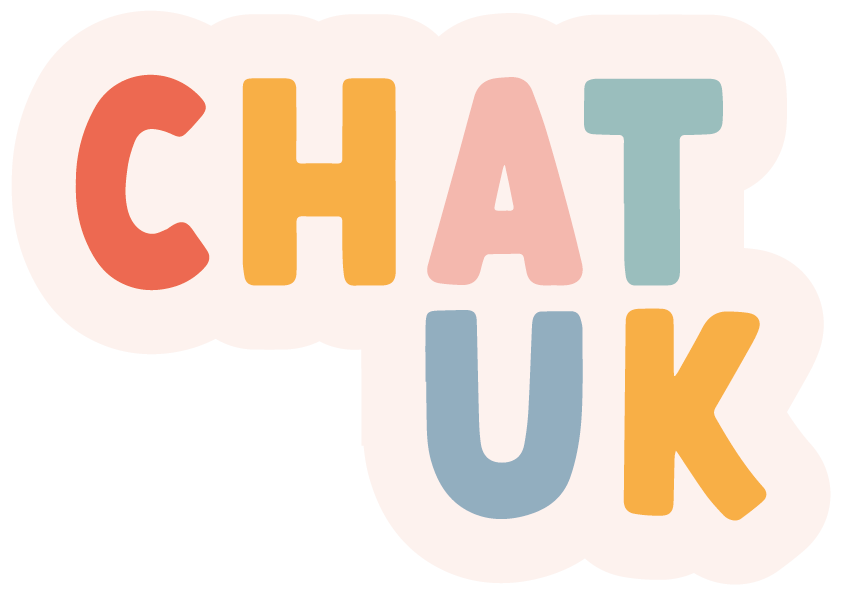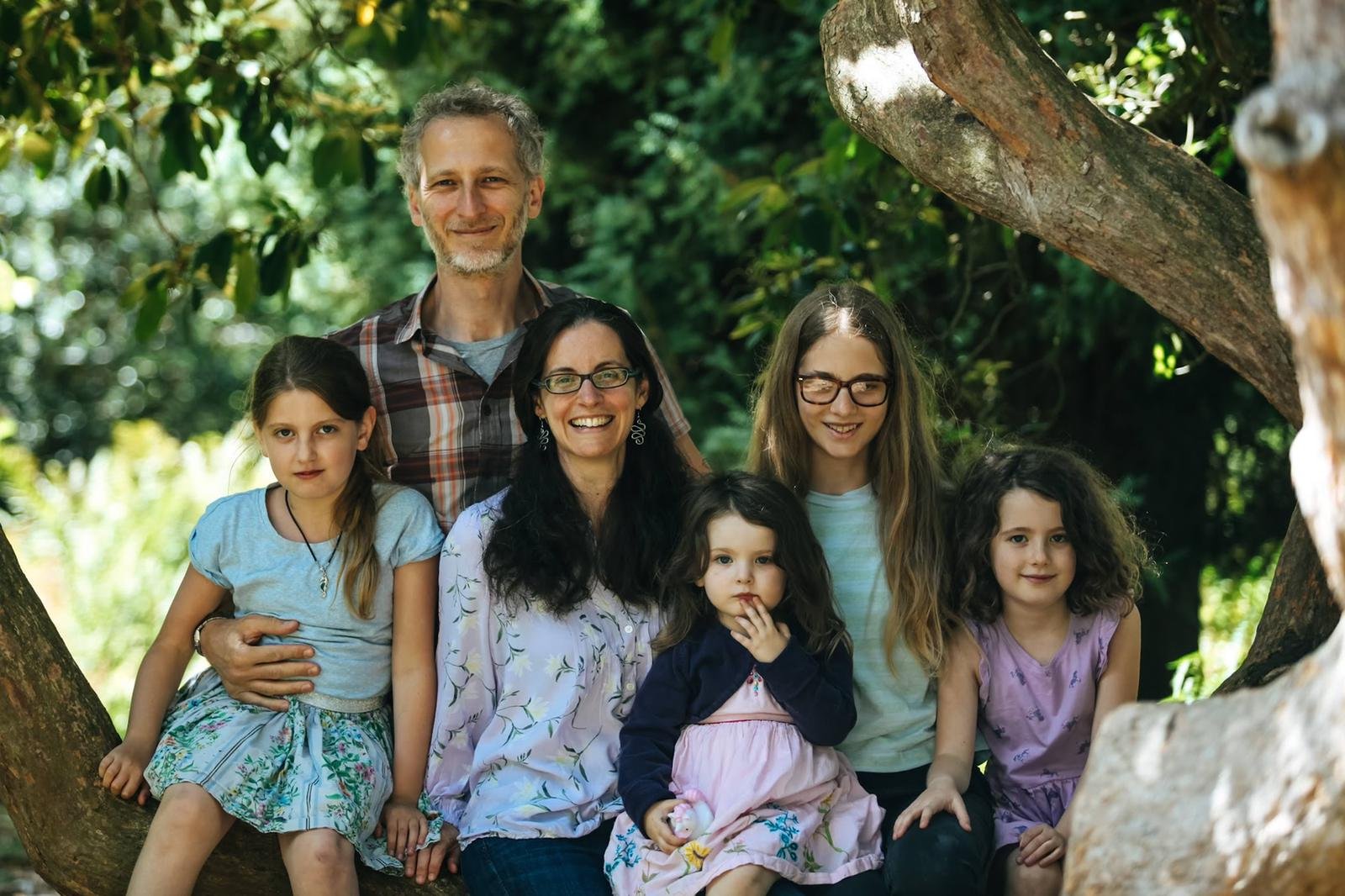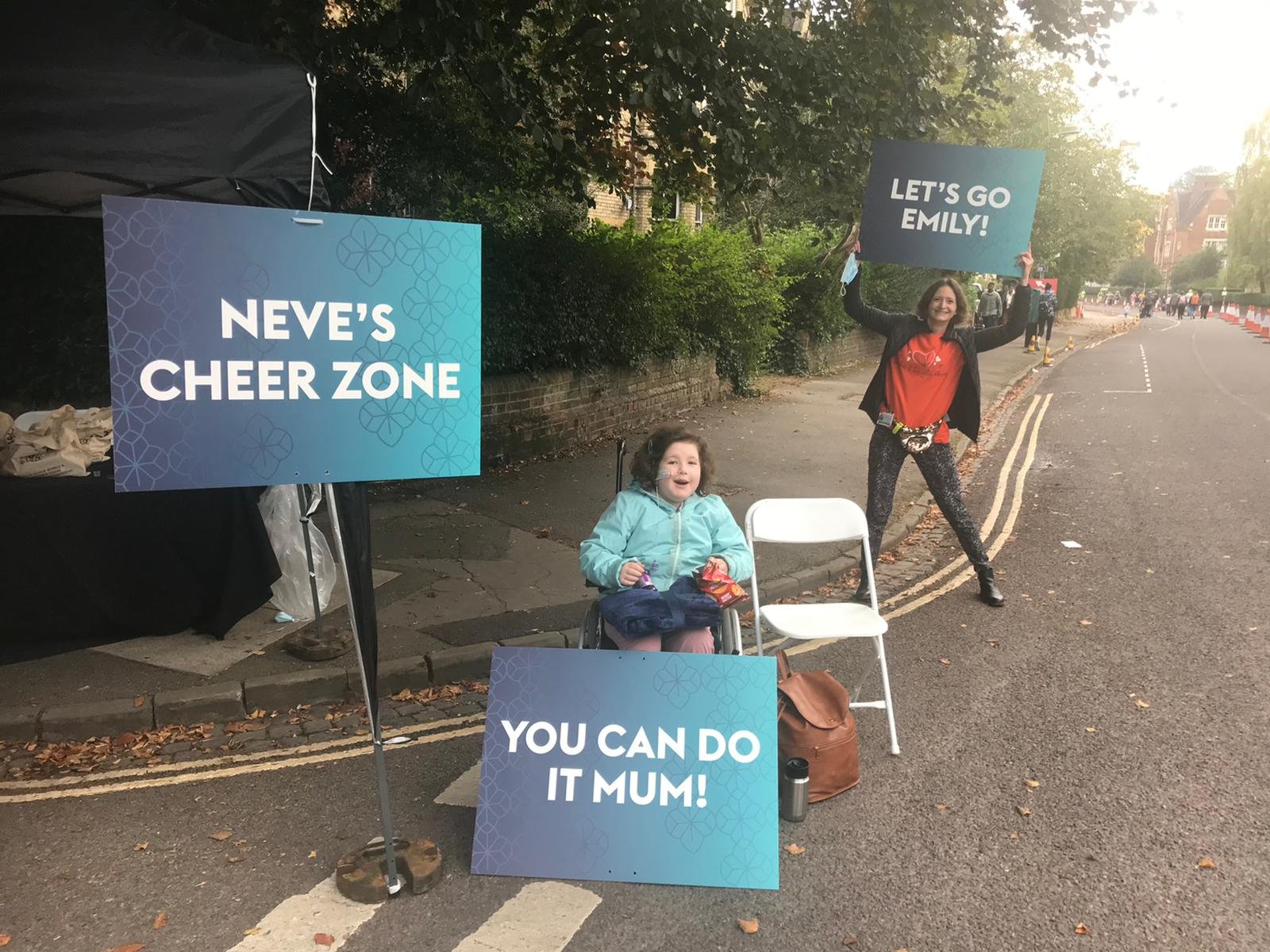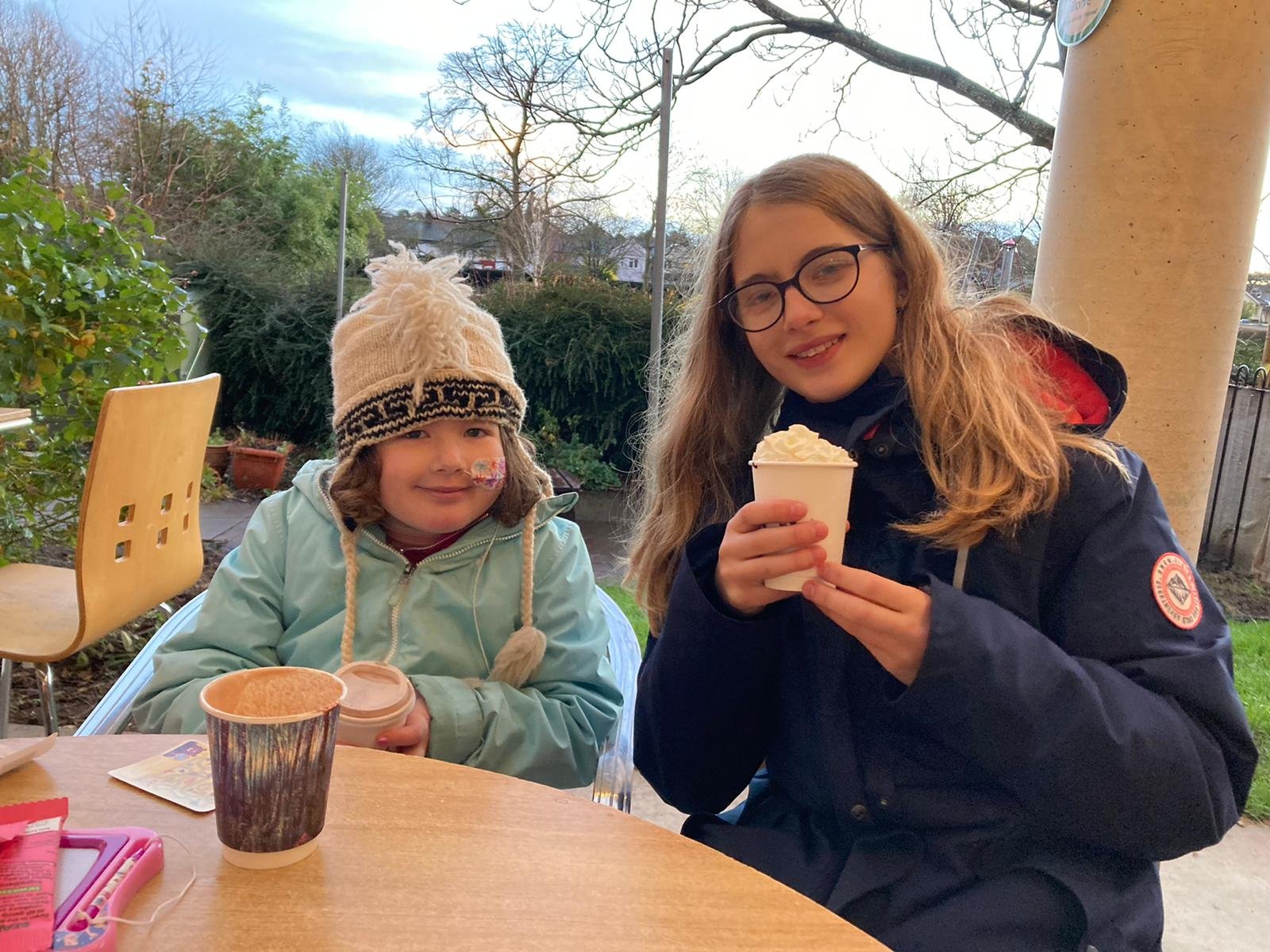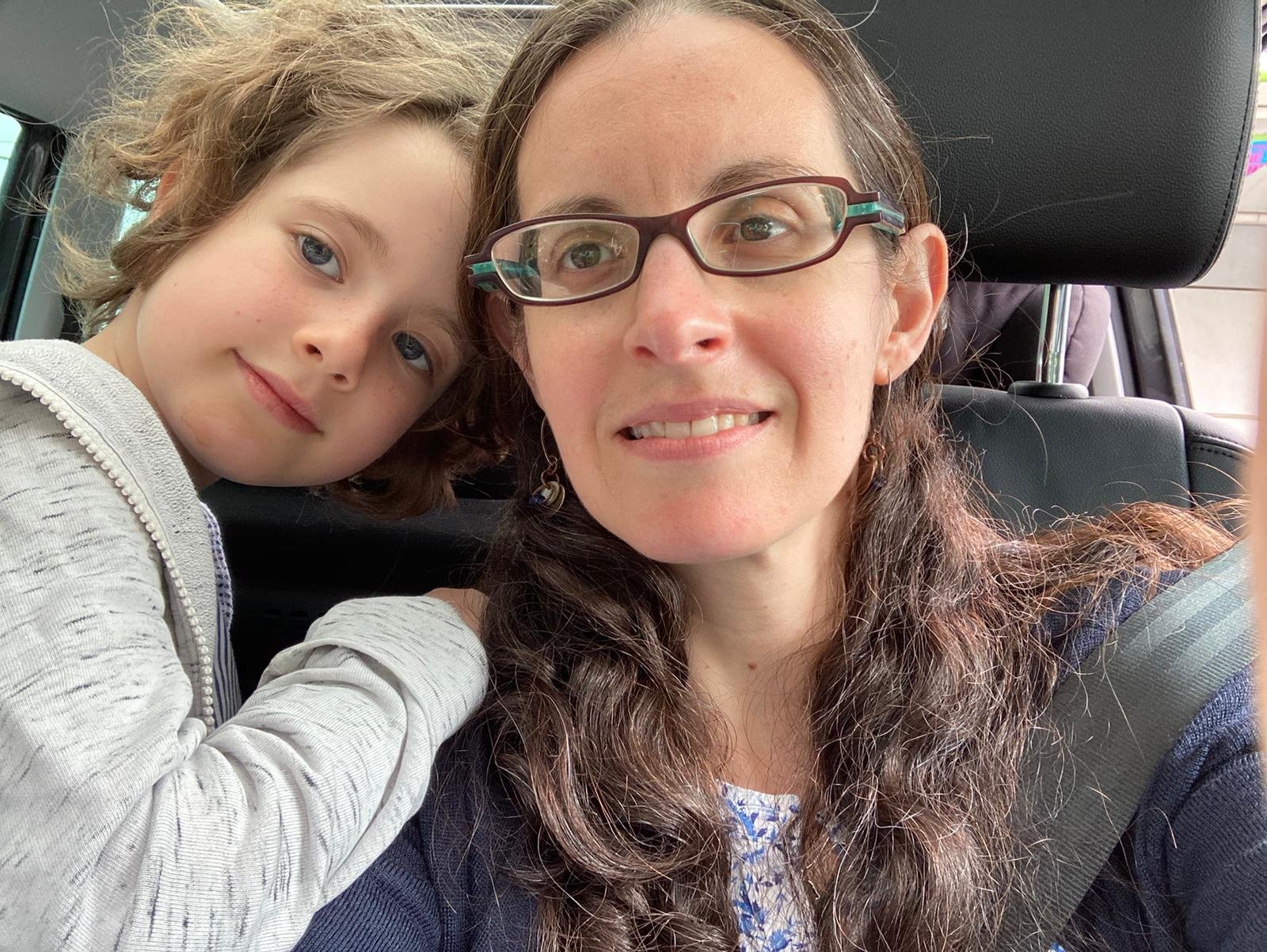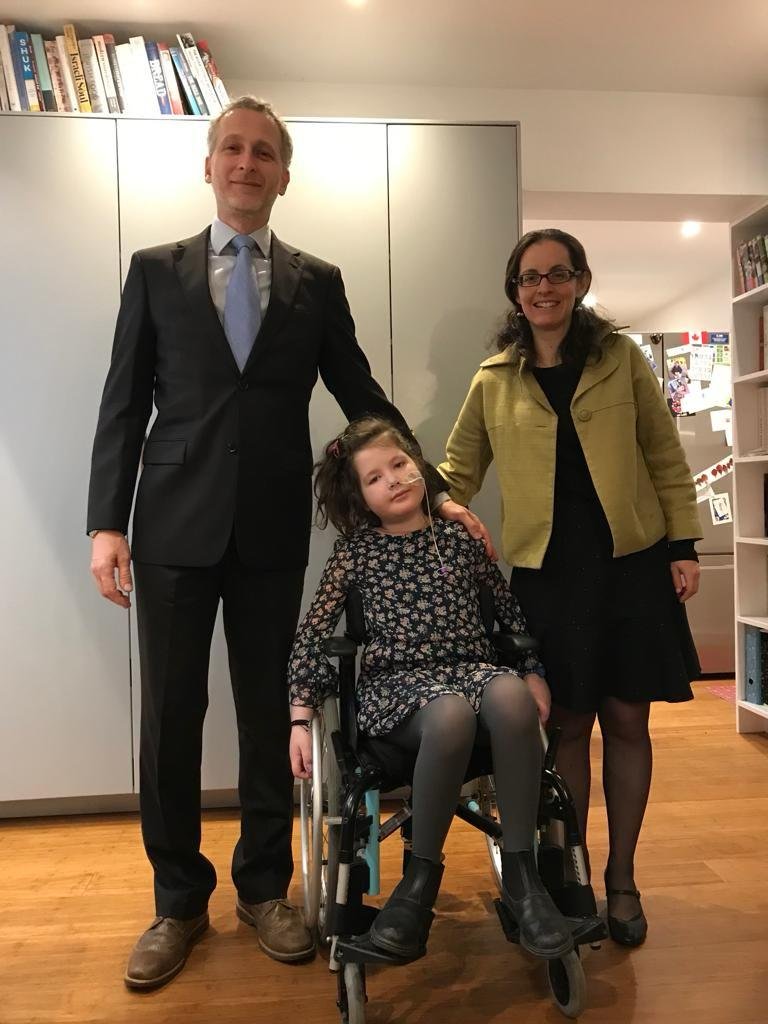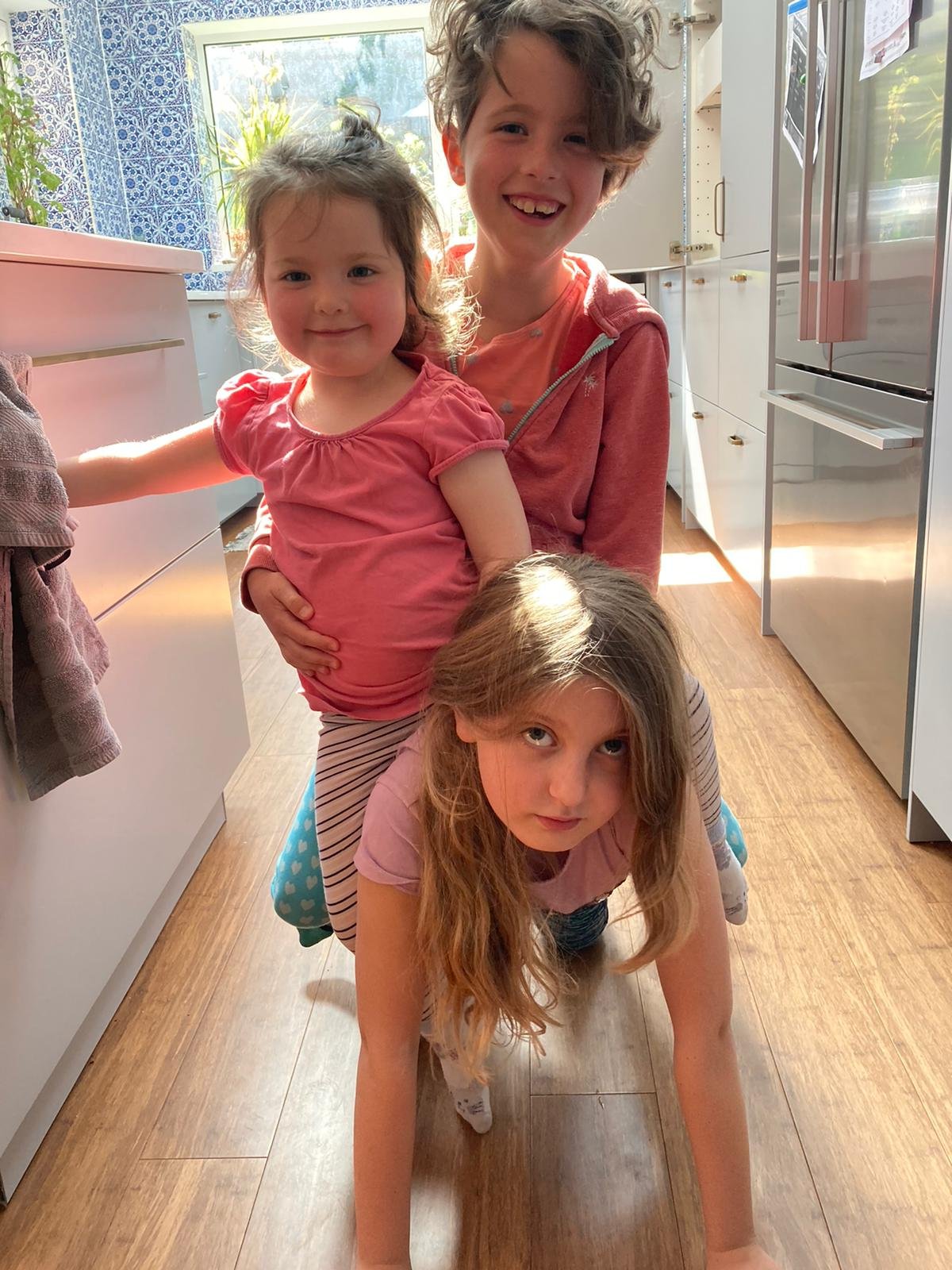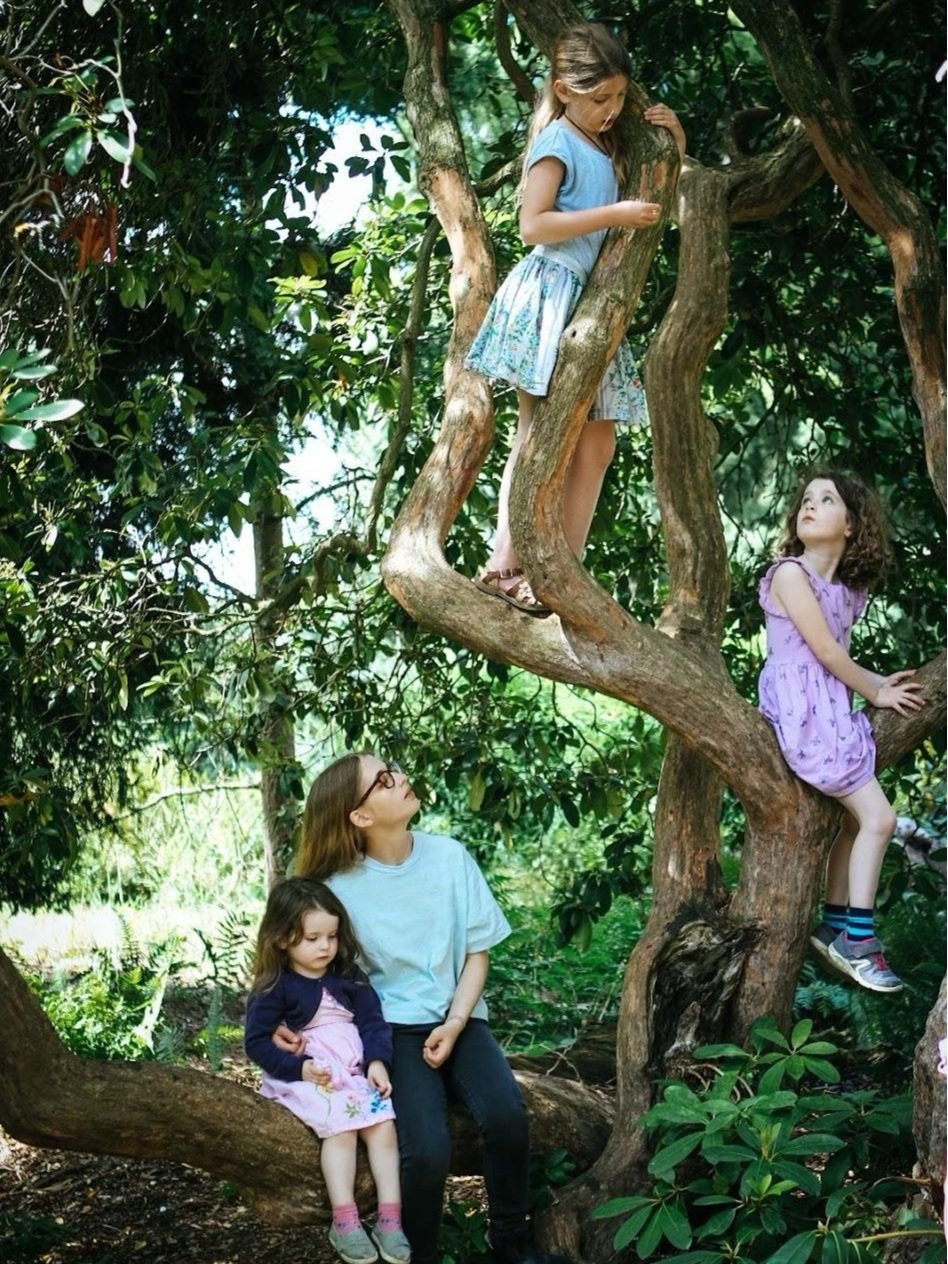Neve’s Story
Photo by Louise Perkins
Neve’s Diagnosis
On writing this in January 2022, Neve is 9 years old and she is wonderfully funny, energetic, clever, caring and headstrong.
She was diagnosed with an aggressive brain tumour in July 2020, after (in hindsight) months of behaviour changes and weeks of being unwell.
Neve had neurosurgery straight away, followed by radiotherapy and chemotherapy. She found the hospital and medical treatment to be very traumatic and distressing, though we were hopeful that the treatments would work.
A referral to local hospice - Helen House
However, by the end of September 2020, her symptoms started to return and it was clear that she needed more holistic support than the hospital could provide.
I will forever be grateful to them for acknowledging this and suggesting a referral to Helen House, our local children’s hospice, whilst Neve continued with active cancer treatment.
Meeting Francesca
This led to us meeting Francesca. At the time, we didn’t realise how much this meeting and this person would impact our lives.
She visited us at home in her capacity as an outreach nurse, to tell us about all the ways that Helen House could support Neve and our family, including Neve’s three sisters.
We warmed to Francesca instantly. She was clearly a competent and dedicated nurse, a skilled clinician and an incredible communicator, which is exactly what Neve needed.
“Too aggressive to cure”
Francesca supported us as we got to know Helen House and then, only weeks later, as we received the news that Neve’s tumour was not responding to treatment and was too aggressive to cure.
Within days of receiving this news, Neve had her first seizure and ended up on a ventilator in PICU. Things were changing very quickly and we were overwhelmed, knowing our daughter was going to die, maybe very soon.
It was at this time that one of the Helen House doctors came to see us in PICU and told us that they would “scoop us up now”. She could not have spoken more powerful words.
Our Second Family
From this point on, Helen House became like a second home for Neve and the staff there, including Francesca, became a second family for all of us.
Neve cheering on her mum Emily doing her first half marathon, with the support of Francesca
Neve has suffered a lot with a wide variety of symptoms, including long periods of severe pain and severe emotional distress. Whilst we have sadly not been able to relieve all of Neve’s suffering, I am confident that embracing Helen House and palliative care has absolutely been the best thing we could have done and has minimised Neve’s suffering as much as possible.
It was especially helpful having a team who understood that anything medical, particularly blood tests and Covid tests, was very traumatic for Neve.
They helped us to keep Neve out of hospital and at home, where she wanted to be.
Neve is also lucky enough to be able to spend time at Helen House, being supported, cared for and loved.
Francesca has facilitated much of this care, alongside the whole team.
For many months, I was in regular, often daily, text contact with Francesca and she came for weekly home visits.
Some of this was supporting us with acute medical situations and medication changes, with her liaising with the Helen House doctors and then with me.
However, it was the weekly home visits that meant the world to me. I had realised early on that Francesca was an excellent listener and that when I would get off the phone with her or we would finish a conversation, I felt significantly lighter, more at peace and stronger.
Francesca offered to come visit each week, just to listen. These visits were of immeasurable benefit and helped keep me going, in what often felt like an impossible, unsustainable situation.
However, Neve also adored Francesca, so these visits always ended with them spending time together, usually playing UNO, with Francesca (almost) always losing!
You can imagine my sadness when Francesca shared the news with me that she was leaving her Helen House role.
However, the stars aligned once again and a very wise NHS community nurse proactively registered Neve with the same agency that Francesca was going to be working with. It wasn’t long before Francesca returned to us, this time working directly with Neve, a couple of shifts per week, as her nurse.
Francesca became a partner in Neve’s care. She supported us in managing all her varied symptoms, particularly in relation to her emotional distress and sorrow. Because she got to know her so well, she was able to help us make decisions and ensure that we were always doing the best that we could for Neve and her sisters.
During her time as Clinical Lead on Neve’s agency nursing package, her support was instrumental in ensuring that new nurses and carers knew how to communicate with Neve, before they even walked through the door on their first shift. Words can’t describe how much this has helped Neve’s agency support to be the very best it can be.
The Power Of Palliative Care
My perceptions of hospices have not changed drastically, because I was always very open to them, having a small amount of insight into the power of palliative care and the importance of good communication and holistic support from my previous work.
However, I now have a profound understanding of the value of early referral to a hospice and how meaningful palliative care can be, to ease the suffering of children and to bring joy and dignity to their lives.
What I think has changed is my understanding of the wide range of support that hospices provide. They are not just places where families can receive support when a child is at the very end of their life. Rather, they are a place and people who can support when things are tough, who can put plans in place to avoid things becoming even more traumatic, who can support siblings and grandparents and the whole family, in unique, individualised ways.
I won’t ever forget a phone call that I had with Francesca and one of the doctors, when I was exhausted and struggling.
They suggested that I bring Neve in for a day visit, but, knowing that I would be unlikely to rest if I stayed home, they suggested I come too. They had one of the family flats made up for me, brought me food and left me with strict instructions to rest. Knowing that Neve was safely cared for downstairs meant that I could switch off and take a much needed break.
My Suggestions To Anyone Supporting Others In A Similar Situation
Come up with a list of ideas to help
If I had any thoughts or guidance for others who want to help families in a similar situation to ours, I would suggest figuring out ways to help that work for that individual family.
They might not be able to think about what help they need, so offer some ideas. Some of the best offers of support that I received were letters which contained a list of ideas and clear instructions that they were not expecting a reply but that if any of these ideas sounded good, just to let them know. This meant I didn’t have to come up with ideas, when I was already overwhelmed.
Create a food rota, offer home-cooked food, ready meals or takeaway vouchers
If you want to set up a food rota, liaise with the family about what will work. We have had a variety of rotas, which have been incredibly helpful at different times.
For a while, people brought food aimed at Neve and her siblings, chosen from a short list of things that we knew they liked. We had realised that because they were struggling emotionally, this was not a time to expect them to try new foods, so giving them foods that felt familiar (often cooked from the same recipes that I used) meant that they would eat it.
At another point, I cooked for the kids but our friends and community brought more adventurous meals in small portions, for my husband and I.
Other things that have been helpful have been vouchers for takeaway or ready meals.
Very early on, friends placed a cool box outside our front door and this allowed people to leave us food and other items without needing to knock. This meant that we didn’t have to talk to people if we didn’t feel up for it and they didn’t have to worry about whether they were interrupting anything. The box is still there and our children refer to it as the Magic Box!
Collect medicine
Getting medication has been quite a challenge at times, as Neve is on so many different medicines that need to be sourced and collected from different pharmacies, sometimes at very short notice. It has been incredibly helpful knowing I could put out a plea for help on a support group for our family and that somebody out there would collect the medication for us.
Offer your time and make it clear a reply isn’t needed
I would also suggest offering your time, whether that is for a lift, a walk or to take a sibling to school; but always be clear that a reply is not needed. And then keep offering your support, for as long as the family needs it, even when it might feel like things have moved on.
Don’t take it personally if they don’t reply, just send a text the following week. Or leave something on their doorstep, whether that is food, flowers, a card, anything to let them know that you are there and thinking of them and wanting to help.
Being held by our community and friends and family has been incredibly supportive and I don’t think we could have done this without them. It really takes a village in these situations.
My Suggestions To Any Family Facing A Similar Situation
Call your local hospice
If I were offering support to a family in our situation, I would suggest calling your local hospice or asking for a referral, and going in with an open mind. There is evidence that good palliative care can actually extend life, which is certainly our experience, as Neve has lived longer than anybody expected.
You don’t need to take up all the offers of support but learning about what is on offer, before you need it, can mean that the place and the people are already familiar to you when a crisis hits.
I will forever be grateful for the time that Neve had in Helen House when she was (relative to now) healthy and able to run around inside and in the garden and get to know everybody.
Now when she goes and needs much more support, it is familiar to her and she is happy to stay on her own, giving us much needed respite. In fact, she often asks when we are leaving, when we drop her off! They really are her extended family and meeting them early has made a world of difference.
Accept offers of support from local community nursing teams
On that note, I would also suggest accepting all offers of support from the local community nursing teams. It took us a while to access their support (mostly because we were so well supported by Francesca and Helen House!), but I am so glad we did. They are just as kind, caring and competent as the Helen House staff and offer support at home, which has been enormously important for us, in ensuring Neve stays out of hospital.
The impact that Francesca has had on Neve and our family is truly life changing.
We have no control over the aggressiveness of Neve’s cancer, nor the fact that we know she will die from it soon.
However, Francesca has helped ensure that there is the right support for us, every step of the way. This has allowed us to sustain our caring for Neve and our family and to ensure that Neve’s physical and emotional symptoms are minimised.
Neve has felt more love and support in her short life than many people experience in a long lifetime, much of it from Francesca, our local hospice team and the nurses and carers who care for her at home.
Neve with her mum and dad
Neve with two of her sisters
Photo by Louise Perkins
